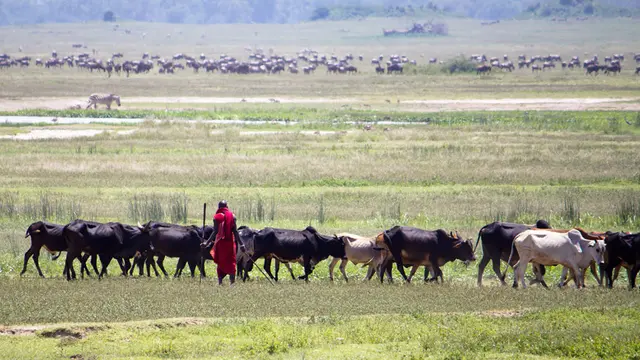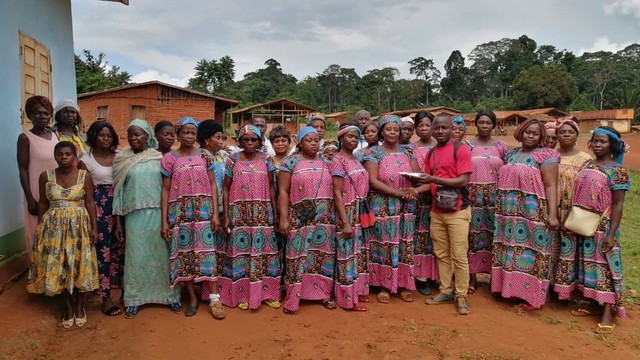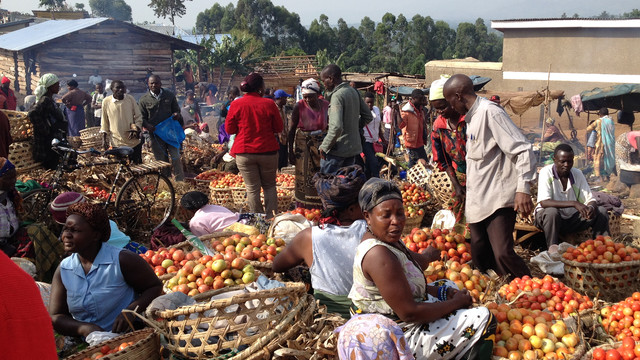Interview: Why should governments, banks and multilateral agencies attend CBA16?
We spoke with UK Foreign, Commonwealth and Development Office climate resilience advisor Vincent Gainey about the benefits of attending next month’s conference on community-based adaptation.
 This year's international community-based adaptation conference (CBA16) will connect adaptation practitioners and researchers from around the world to discuss the challenges and solutions to putting locally led adaptation into practice.
This year's international community-based adaptation conference (CBA16) will connect adaptation practitioners and researchers from around the world to discuss the challenges and solutions to putting locally led adaptation into practice.
But what about the other partners that can support delivering locally-led adaptation to climate change: governments, multilateral agencies, development banks, foundations and development agencies? How can they benefit from attending CBA16?
We spoke with Vincent Gainey (VG), climate resilience advisor with the UK Foreign Commonwealth and Development Office (FCDO), about the value of participating in CBA16 and how this event relates to international initiatives such as the principles for locally led adaptation.
Q: What can institutions like yours – finance providers and government ministries with international influence – learn from an event like CBA16?
VG: There are several things that we have learned so far from CBA conferences and that we wish to continue to learn.
One is that it allows us to interact directly with a very wide-ranging network of practitioners, donors and researchers and solution-finders or solution-providers – those who are looking for solutions to how we can deliver locally led adaptation and those who are tasked with providing it, whether they're NGOs or government agencies or whatever.
We’re not just there as a passive listener. We also want to have an opportunity to give our perspective as a donor, to be able to say: that we regard it as important. We've demonstrated through our commitments to date that we regard this as an important initiative.
So, there's a lot of listening and learning.
What we can learn as well is who is not there. Who's not coming to the CBA? Why haven't we got some of those big multilaterals coming along, listening and learning and deciding whether they want to join or not? And what can we do to incentivise them to join?
I'd like to be able to not just listen, but to be able to ask difficult questions as well.
We are accountable to our taxpayers. Community-based adaptation is a fabulous concept, and we are behind it. But we have to make an argument within our own organisations. When it gets down to closer and closer to the local level, how can we continue to ensure the levels of transparency and accountability that, politically, our governments would require us to have?
We'd like to have that open conversation to say: “Yes, we want you to tell us what the challenges are you're facing. We want you to talk to us about the solutions that you're finding to address those challenges.
“We have to be able to craft the argument that is compelling for our governments to agree to finance something which they might find a bit uncomfortable to start with.”
So, let's have a conversation around that and see where we can reach common ground.
Q: How can the worldwide community of practice around CBA support the locally led adaptation principles and effective adaptation?
VG: The programme I'm leading at the FCDO, LIFE-AR, is setting up a community of practice across the Least Developed Countries Group. There are 46 least developed countries, and they want to set up a community of practice to establish South-to-South, peer-to-peer learning principles so that practitioners are enabled to learn from each other.
I think having a community of practice democratises the process a lot more. It gives power to Southern bodies and empowers them to start making their own decisions without requiring Northern control and ownership of that process -– away from the kind of traditional technical assistance type programmes.
But a community of practice needs to really define what it's trying to do. I think we need to make them more practice-oriented than they have been to date.
Q: How can CBA16 advance the principles for locally led adaptation?
VG: I think probably, give an opportunity for the organisations that have endorsed the principles to say how the principles changed their way of working.
I think we've got to talk about what it has meant to us and why it's been important to us, how we changed our business as a result of committing to the principles – and using that as an opportunity to bring other people on board.
Q: Do you think there are discussions at CBA16 that can help generate messages that could be taken forward to the next climate summit, COP27?
VG: I think potentially, this CBA could be a springboard on the way to the adaptation and resilience events, which are still being crafted for COP27.
For example, Uganda is championing what they call their 'parish development model', which is devolving decision-making as much as possible to the lower administrative unit within the country. There are opportunities to showcase these examples and say: well, it is feasible in low-income countries. Governments, if they have the political will, are able to take this forward.
All these types of opportunities can be articulated at CBA and then potentially brought to a much bigger global audience through COP27 because we've got a different set of stakeholders engaged in COP27.
Q: What would you be looking for from CBA16?
VG: I'd be looking for CBA to start pointing out, in line with the aspirations of Egypt as incoming COP President, how we can move from policy to implementation. So let's see: what does it mean now? Where are we going to go with this in terms of delivering against the climate crisis that is with us now?
Q: What can CBA participants contribute in terms of moving the agenda forward in the way that you've said must happen?
VG: As donors, we can give examples of what we're committing to.
There's a real passion that people who are dealing with this close-up rather than at a distance can bring to CBA, to tell us what's happening at the community level, and about how the governments support those communities are responding to that as well.
And while it's really important that CBA brings us the voices from the communities and institutions closest to the frontline, we also need to hear from the governments that will provide the resources to those communities. We need to hear from the governments of, for example, Ethiopia, Uganda, Kenya and Bangladesh about what they're doing in terms of changing the way they do business – to support their local communities.
We'd love to hear how they're doing that, what their recommendations, their challenges are, and what their successes are, and use those as an opportunity for peer learning across the community. That's very interesting.
- Sign up to register for CBA16, which brings together practitioners, grassroots representatives, local and national government planners, policymakers and donors working at all levels and scales to discuss how to put the principles for locally led adaptation (LLA) into practice.


